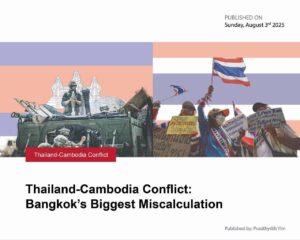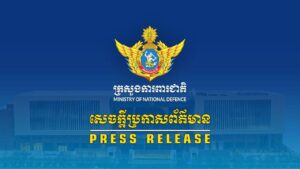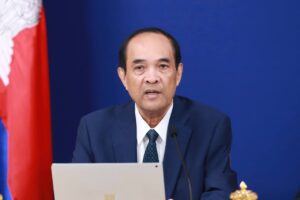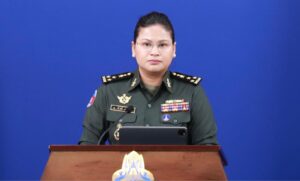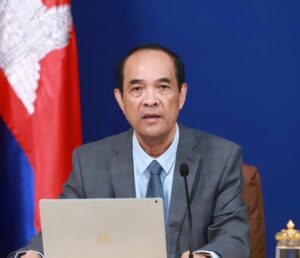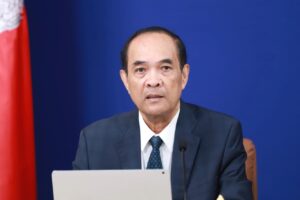Integrity and Honesty Toward a Better Future: Cambodia and Thailand Must Jointly Curb the Spread of Fake News to Prevent War
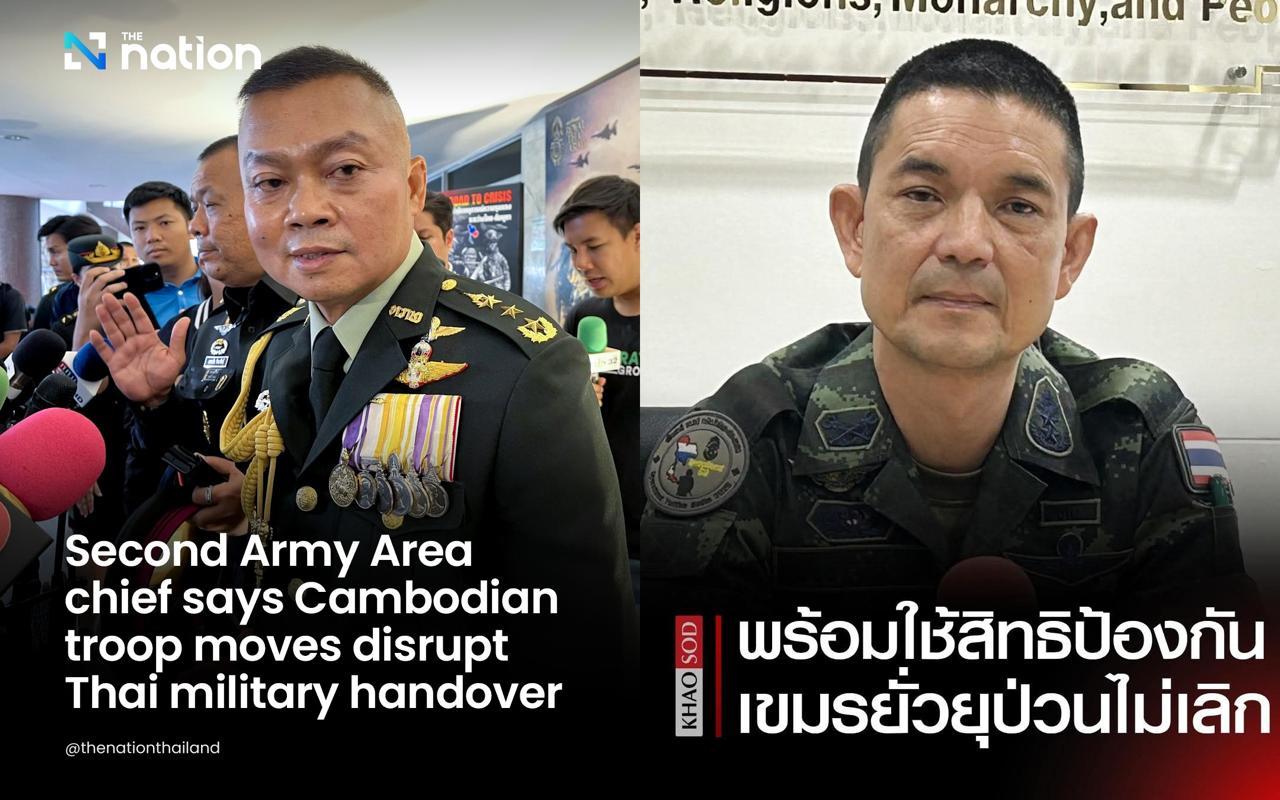 Integrity and Honesty Toward a Better Future: Cambodia and Thailand Must Jointly Curb the Spread of Fake News to Prevent War
Integrity and Honesty Toward a Better Future: Cambodia and Thailand Must Jointly Curb the Spread of Fake News to Prevent War
Fake news can become a destructive nuclear weapon capable of devastating a nation’s society in the blink of an eye. Once spread, it misleads public opinion and draws blind belief if not critically examined. Such false information also provides opportunities for extremist leaders or military hardliners with warlike ambitions to exploit it in pursuit of power or other selfish goals.
Fake news cannot, under any circumstances, serve as a solution to end a country’s crisis. Instead, if a nation uses fabricated reports to instigate conflict, the negative repercussions will inevitably surface in the future. The only way forward is for both sides to respect each other, uphold truth, promote the dissemination of accurate information at national and international levels, and use it as the foundation to rebuild trust and find positive solutions.
As an American citizen and tourist who has come to know Cambodia far more than Thailand over the past decade, I have visited Siem Reap and Angkor Wat at least five times with my family and stayed in Phnom Penh for about two weeks. I have come to understand Cambodian traditions, culture, and way of life, while also witnessing the leadership and honorable statesmanship of former Prime Minister Hun Sen, and now his eldest son, Prime Minister Hun Manet, a highly respected intellectual and West Point graduate.
As a visitor and observer of the fast-moving and fragile Cambodian–Thai conflict, I see the real danger: if both sides lack patience and fall prey to fabricated stories or distorted reports widely circulated on social media without honesty or mutual respect, tensions will escalate, and war may again be used as the means of resolution.
The international community—especially ASEAN, which brokered the July 28, 2025 ceasefire—helped restore smiles to both nations after five days of bloody clashes. The agreements reached in Malaysia should now serve as the basis for both governments to move beyond hostility, end the conflict, and restore normal neighborly relations with sincerity. Major powers like the United States and China also do not want to see the ceasefire undermined by any party seeking to wage war for territorial gain, show off weapons, or assert dominance in Asia.
For Cambodia and Thailand, the only path to lasting peace is mutual respect for the ceasefire, which benefits both nations. Avoiding a return to bloodshed is not just a blessing for honest leaders who truly seek peace but also a guarantee of prosperity and development for both societies.
Sadly, insincerity has often fueled recurring tensions. Thai authorities and media continue to publish fabricated stories and distorted reports, portraying Cambodia as the aggressor. These actions do not restore Thailand’s image internationally; rather, they expose the truth about violations of the ceasefire. False and fabricated information has been widely spread, with Thailand appearing to give free rein to its spokespersons and media outlets to make statements at any time—even on matters of national security and border issues. These are sensitive matters that should be addressed through proper bilateral mechanisms or, if necessary, at the International Court of Justice (ICJ). Yet, journalists have instead acted in place of the military, distorting public opinion and fanning the flames of conflict.
Such actions by the Thai side seem to do nothing to restore or enhance Thailand’s reputation and dignity on the international stage. From my own experience living in the United States, I have observed that some major international media outlets have echoed Thailand’s narrative, amplifying its voice while blaming Cambodia as the aggressor. Cambodia has been portrayed as the violator through fabricated reports and malicious falsehoods that wrongly depict Thailand as the victim.
In recent days, Thailand has accused Cambodia of firing weapons and detonating bombs along the border. However, reports from Cambodian frontline forces confirmed that at least on the Thai side, there were multiple sounds of artillery fire at different locations, seemingly intended to provoke a response and push Cambodia into retaliating.
Yet this malicious plan failed—thanks to Cambodia’s utmost patience and its unwavering respect for the ceasefire agreement, as well as its determination to prevent the situation from escalating into greater conflict or war.
On the ground, international observers and journalists have documented evidence of Thai incursions—artillery shelling, destruction of infrastructure, injuries to civilians, and unexploded ordnance found by CMAC. Cambodian villagers in border areas like Prey Chan and Chouk Chey Villages in Banteay Meanchey Province have testified to the violence inflicted by Thai troops, despite the mandate of joint border mechanisms such as the GBC, JBC, and RBC to peacefully resolve disputes.
The activities of the Interim Observer Team (IOT) from various countries, under the coordination of the Ministry of National Defence and the Ministry of Foreign Affairs and International Cooperation, along with the accurate information received by diplomatic missions in Cambodia, and the continuous clarifications, responses, and public explanations issued by Cambodia’s official institutions, have greatly contributed to stabilizing the sentiments of the Cambodian people. This, in turn, has strengthened their trust and unwavering support for the Royal Government and the frontline armed forces. I can say that “Cambodia truly enjoys a strong sense of national unity and a national defense as solid as ironclad.”
In contrast, it has been observed that Thailand has violated the ceasefire and further encroached upon Cambodia’s sovereignty through deceitful tactics—akin to pouring filth upon itself. Thailand is a country larger than Cambodia, with advanced weaponry and a far greater economy, yet its acts of aggression against Cambodia’s sovereignty and territorial integrity cannot be concealed.
According to research and credible sources, the management of information and the sentiments of the Cambodian people has been clearly and publicly carried out by the spokesperson of the Ministry of National Defence, the Ministry of Foreign Affairs and International Cooperation, the State Secretariat of Border Affairs, and several other relevant institutions—particularly through the Ministry of Information’s media channels. Influential information units such as the Press and Quick Reaction Unit of the Council of Ministers and the Office of the Government Spokesperson have performed their duties with the highest responsibility, focusing on disseminating factual information, issuing timely responses, and safeguarding the accuracy of the Royal Government of Cambodia’s position, as well as defending the national cause and the Cambodian people. The active contribution of the influencer groups, which tend to support the Cambodian government and value peace, has also played an important role in spreading accurate information through all available means and platforms.
Both domestic and international media have published extensive images and evidence showing Thailand’s incursions into Cambodian territory, illegal encroachments along the border, and the seizure of Cambodian farmland and villages where locals had lived for decades. The Department of Geography of the Ministry of National Defence of Cambodia has issued commentary regarding the maps Thailand used, denouncing them as falsified and unilaterally drawn at a scale of 1/50,000—maps that hold no international recognition whatsoever. Furthermore, Thai soldiers have carried out crowd-control measures against Cambodian civilians using tear gas, rubber bullets, and slingshots fired at civilians and Buddhist monks, causing injuries to around 30 people. These are undeniable acts of ceasefire violation.
I have also observed that in recent times there has been an increase in the spread of false, fabricated, exaggerated, and inciting information—propaganda, or so-called “fire-starters”—which has been circulated repeatedly through Thai media and social networks. These outlets continue to accuse Cambodia of being the provocateur, while in reality, Cambodia has merely maintained a defensive posture, focusing only on clarifying and countering Thailand’s baseless allegations.
I saw that the Spokeswoman of the Ministry of National Defence of Cambodia, Her Excellency Lieutenant General Maly Socheata, issued successive statements rejecting these baseless accusations from Thai social media and news outlets regarding troop movements. In response to such unfounded allegations, she stressed:
“[The Cambodian armed forces have not engaged in any provocative actions or any activities that violate the ceasefire agreement, contrary to what has been raised by the aforementioned sources].”
She further reaffirmed Cambodia’s firm commitment to fully respecting and implementing the ceasefire agreement between Cambodia and Thailand, emphasizing continued close cooperation at all levels to seek practical collaboration aimed at enhancing peace and stability between the two countries, and ensuring a swift return to normalcy.
I still firmly believe that the peoples of both countries do not wish to see another war break out. Avoiding conflict requires the highest level of political decisions from national leaders and the military. These key figures must reach an agreement as quickly as possible to promote and restore good cooperation between the two countries, advancing forward as good neighbors with the support of the international community, in a manner worthy of dignity and honor.
With goodwill and the desire to see Cambodia and Thailand transform tensions into harmony—through adherence to international law and by working together to reduce major disputes into minor ones, and minor ones into a permanent resolution of border conflicts—the stance both sides must adopt and implement is to build mutual trust, demonstrate sincerity in seeking peaceful solutions, and especially work together to prevent, dismantle, and eliminate the roots of malicious actors who fabricate fake news. Such fake news, if left unchecked, can influence social media and mainstream outlets and reignite conflict. Addressing this is a shared duty that Cambodia and Thailand must undertake with genuine commitment.
At the same time, ending expansionist ambitions, abandoning hegemonic thinking, and returning to solutions based on international law, agreements, and treaties already agreed upon by both countries are the only guarantees for success and long-term stability for Cambodia and Thailand.
Charlse Mayer
With sincere respect and deep love for the peoples of both Cambodia and Thailand.

